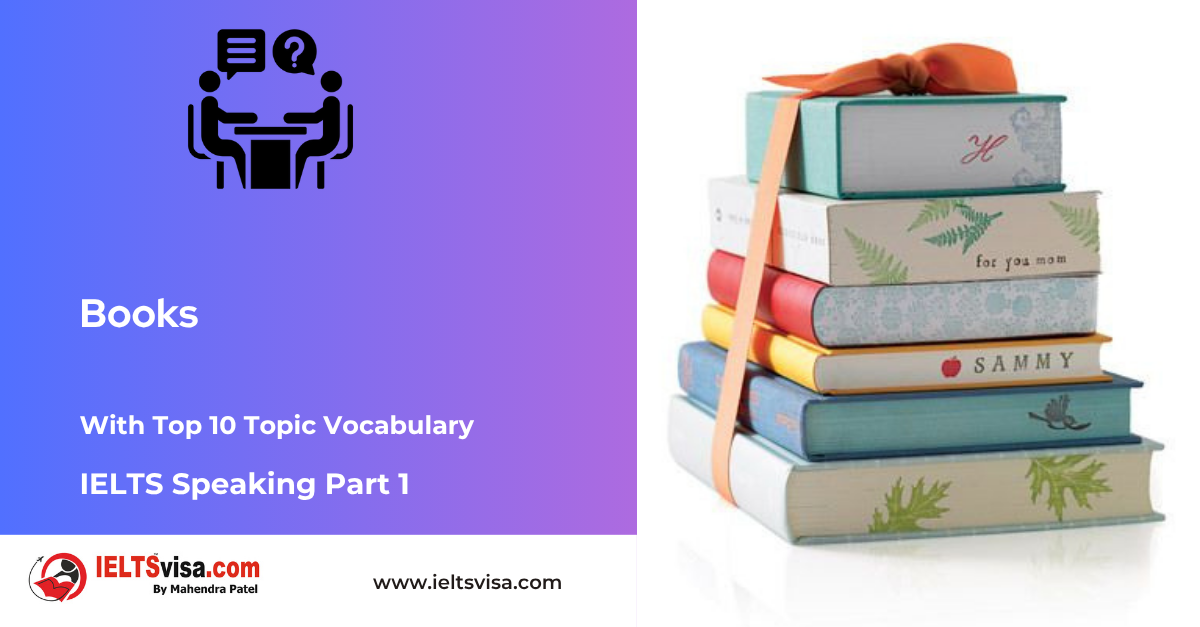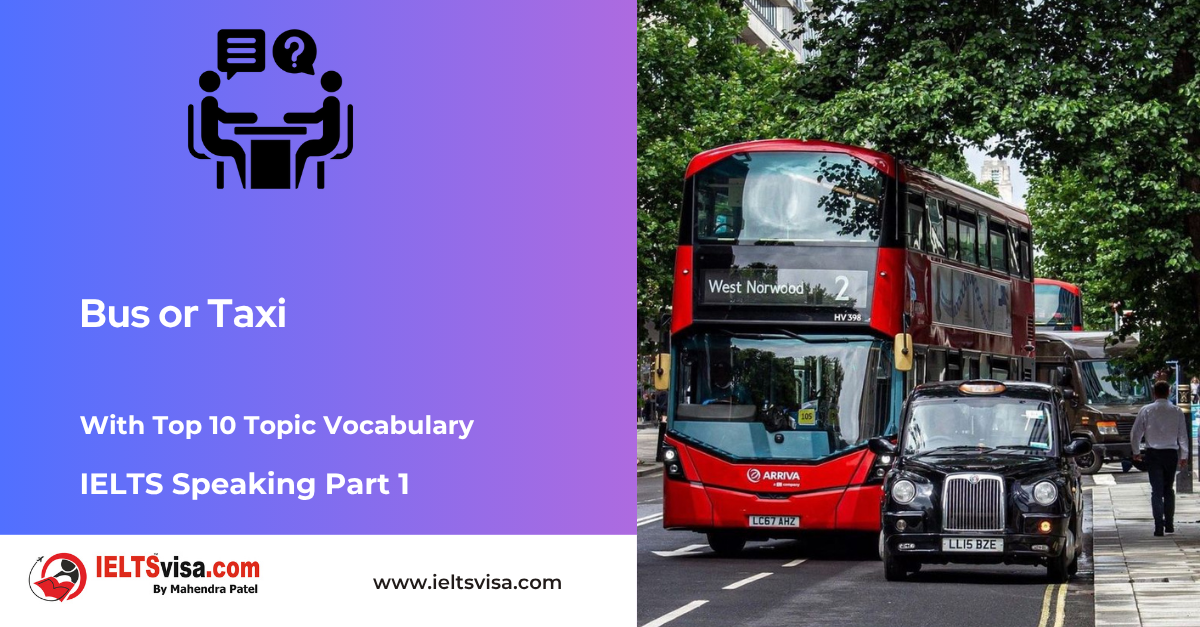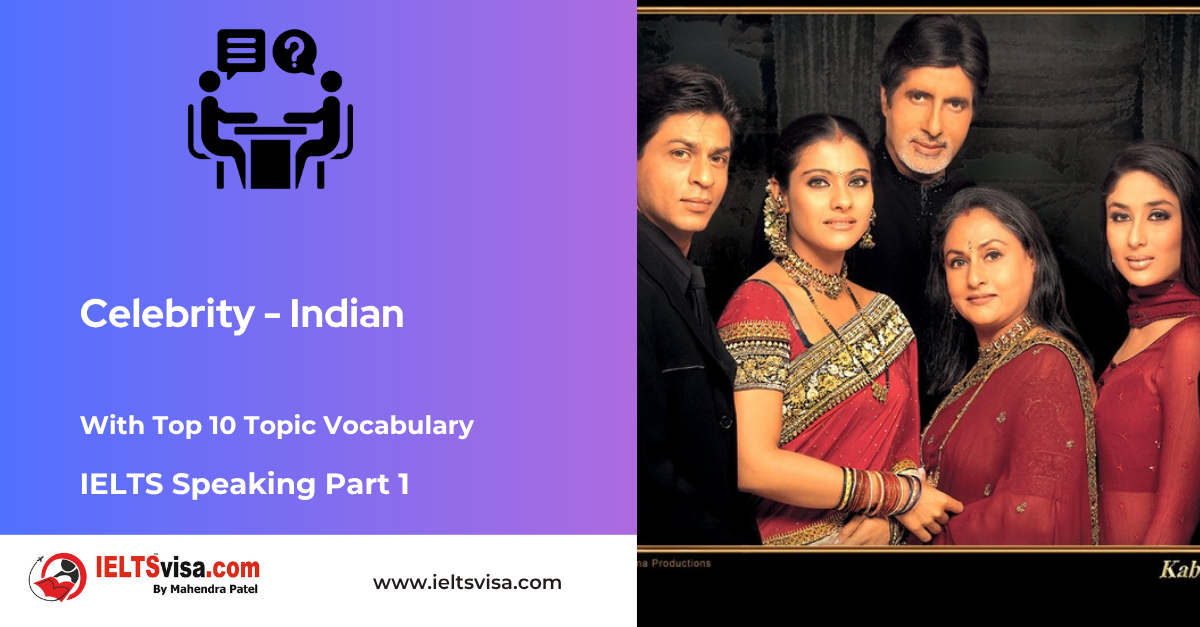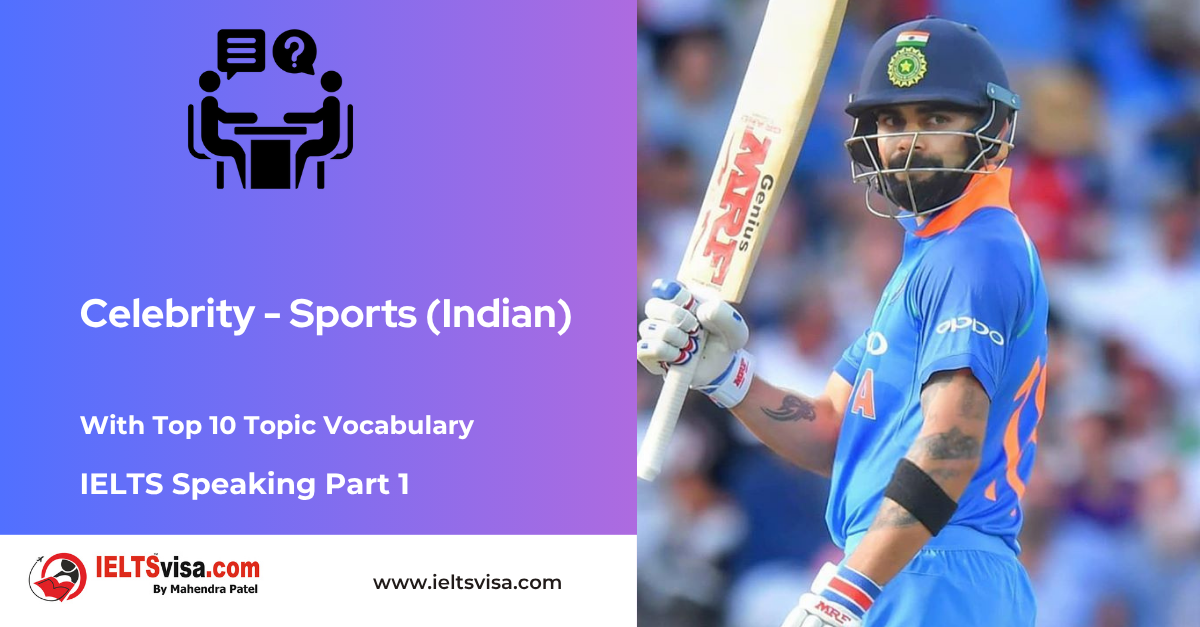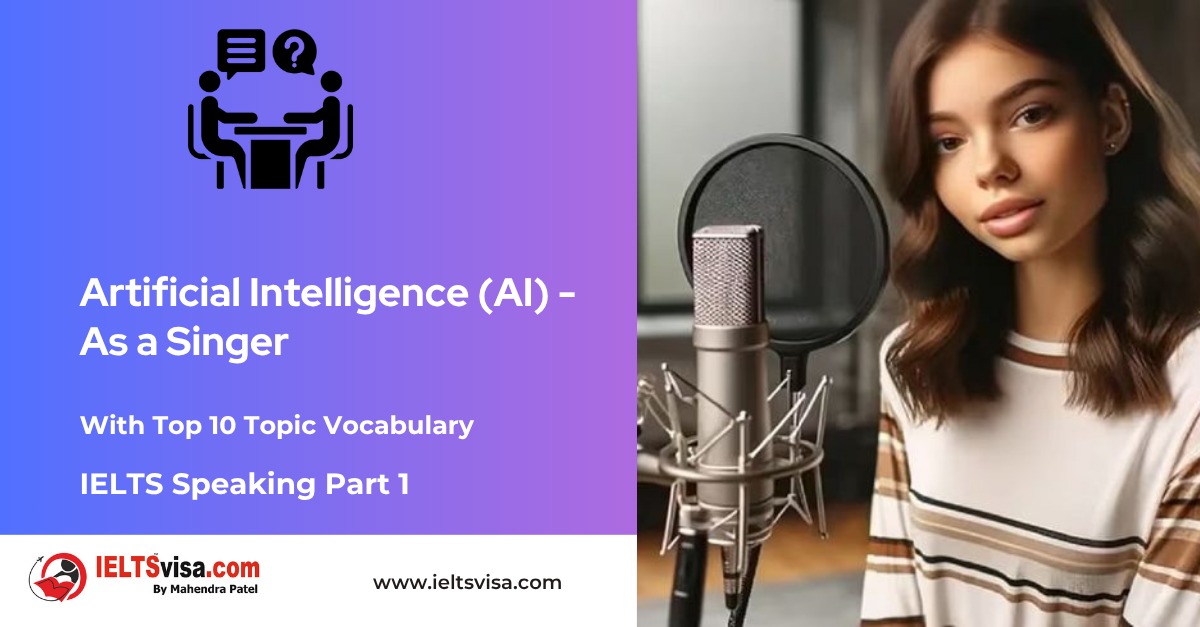IELTS Speaking Part 1 – Arts
IELTS Speaking Practice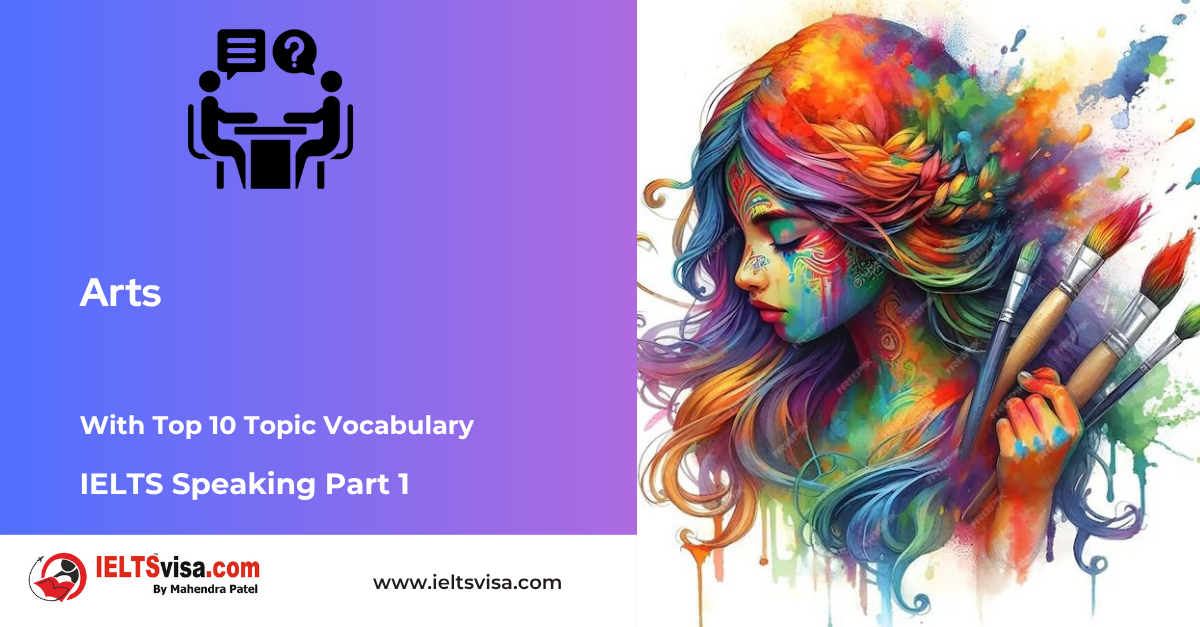
IELTS Speaking Part 1 – Arts
Examiner: Do you like art?
Candidate: Yes, I do. I find art to be a great way to express emotions and creativity. It also offers a different perspective on the world.
Examiner: What kind of art do you like?
Candidate: I enjoy a variety of art forms, but I particularly like painting and sculpture. I also appreciate digital and street art’s modern and often provocative nature.
Examiner: Have you ever been to an art gallery?
Candidate: Yes, I have visited several art galleries. I enjoy seeing different types of artwork and learning about the artists and their inspirations.
Examiner: Do you think art is important?
Candidate: Absolutely. Art is important because it inspires, provokes thought, and brings people together. It also plays a significant role in preserving culture and history.
Examiner: Do you create any art yourself?
Candidate: Yes, I occasionally draw and paint as a hobby. It is a relaxing and enjoyable way for me to express my creativity.
Examiner: What kind of art is popular in your country?
Candidate: Traditional paintings and sculptures are pretty famous, but contemporary art forms like digital art and installations are also gaining popularity.
Examiner: Do you think children should learn art at school?
Candidate: Yes, I believe art education is important for children. It helps them develop creativity, critical thinking, and emotional expression.
Examiner: Have you ever taken an art class?
Candidate: Yes, I took a few art classes in school and enjoyed them a lot. They helped me understand different techniques and styles.
Examiner: Do you think art should be expensive?
Candidate: While some art can be precious, I believe there should be affordable art options so everyone can enjoy and own art, regardless of their financial situation.
Examiner: What is your favourite piece of art?
Candidate: My favourite piece of art is Vincent van Gogh’s “Starry Night.” I love the vibrant colours and the swirling patterns that create a sense of movement and emotion.
Examiner: How do you feel when looking at a beautiful art piece?
Candidate: When I look at a beautiful piece of art, I feel inspired and often moved. It can evoke emotions and make me appreciate the artist’s talent and vision.
Examiner: Do you prefer modern art or traditional art?
Candidate: I appreciate both modern and traditional art. Traditional art connects us to history and culture, while contemporary art often challenges norms and offers fresh perspectives.
Examiner: Have you ever been to an art museum?
Candidate: I’ve been to several art museums. They are great places to see various art styles and learn about different periods and movements in art history.
Examiner: Do you like street art?
Candidate: Yes, I do. I find street art to be very vibrant and expressive. It often conveys powerful messages and can brighten up urban spaces.
Examiner: How does art impact your life?
Candidate: Art impacts my life by providing inspiration and a way to relax and unwind. It also enhances my appreciation for creativity and different perspectives.
Examiner: Do you think art is more important than science?
Candidate: I think both art and science are important in their own ways. Art enriches our emotional and cultural lives, while science drives technological progress and improves our understanding of the world.
Examiner: What do you think makes a piece of art good?
Candidate: A good piece of art resonates with its audience, whether through its beauty, its emotional impact, or the ideas it conveys. It should evoke a reaction and provoke thought.
Examiner: What do you think makes a piece of art good?
Candidate: Yes, I enjoy visiting art exhibitions. They offer a chance to see new works and often provide insights into the artists’ creative processes and themes.
Examiner: Can you name a famous artist from your country?
Candidate: One famous artist from my country is Raja Ravi Varma, known for his beautiful paintings that combine Indian traditions with European techniques.
Top 10 Topic Vocabulary for“Arts”
|
Vocabulary |
Type |
Meaning |
Synonyms |
Antonyms |
Word Family |
Example Sentences |
|
Streamline |
Verb |
Make more efficient or simpler |
simplify, rationalize, optimize |
complicate, make more complex, make more difficult |
streamlining |
AI can streamline the writing process. |
|
Content generation |
Noun |
The creation of new content, such as articles, blog posts, or social media posts |
content creation, content production, content development |
content |
AI can assist in content generation. |
|
|
Grammar |
Noun |
The rules of a language for combining words |
syntax, usage, style |
grammatical |
AI tools can help with grammar and style checks. |
|
|
Emotional depth |
Noun |
The intensity and complexity of emotions expressed |
emotional intensity, emotional range, emotional richness |
emotional |
Human writers bring emotional depth to their work. |
|
|
SEO-optimized |
Adjective |
Optimized to improve search engine ranking |
search engine friendly, search engine optimized, SEO-friendly |
optimize |
AI can help generate SEO-optimized content. |
|
|
Prompts |
Noun |
Words or phrases that stimulate a thought or action |
cues, hints, suggestions |
prompt |
AI can generate prompts to spark creativity. |
|
|
Ethical concerns |
Noun |
Moral or philosophical issues that need to be considered |
moral dilemmas, ethical questions, ethical concerns |
ethical |
The writer addresses ethical concerns related to AI in writing. |
|
|
Authenticity |
Noun |
The quality of being genuine or real |
genuineness, credibility, reliability |
authentic |
Human writers bring authenticity to their work. |
|
|
Personalized |
Adjective |
Tailored to a specific individual or group |
customized, individualized, bespoke |
standardized, generic, common |
personalization |
AI can create personalized content. |
|
Resonates |
Verb |
To have a strong and lasting effect on someone |
connects, relates, appeals |
resonance |
AI can help create content that resonates with readers. |

Our Books
Master IELTS Speaking Part 1
IELTS Writing Task 1 Book
IELTS Writing Task 2 Book
Practice IELTS Other Modules
IELTS Listening
The IELTS Listening test assesses how well you can understand spoken English in various contexts. It lasts about 30 minutes and is divided into four sections with a total of 40 questions. The listening tasks become increasingly difficult as the test progresses.
IELTS Academic Reading
The IELTS Academic Reading section assesses your ability to understand and interpret a variety of texts in academic settings. It is designed to evaluate a range of reading skills, including skimming for gist, reading for main ideas, reading for detail, understanding inferences, and recognizing a writer's opinions and arguments.
IELTS Speaking
The IELTS Speaking test assesses your ability to communicate in English on everyday topics. It lasts 11-14 minutes and consists of three parts: introduction, cue card, and a discussion based on the cue card topic.
IELTS General Reading
IELTS General Reading tests your ability to understand and interpret various types of texts. Here are some key areas and types of content you can expect to encounter in the reading section, along with tips for effective preparation.
IELTS Academic Writing Task 1
In IELTS Academic Writing Task 1, you are presented with a visual representation of information, such as graphs, charts, tables, or diagrams, and you are required to summarize, compare, or explain the data in your own words.
IELTS General Writing Task 1
In IELTS General Writing Task 1, you are required to write a letter based on a given situation. The letter can be formal, semi-formal, or informal, depending on the prompt. Here’s a breakdown of the key components to include in your letter
IELTS Academic Writing Task 2
In IELTS Academic Writing Task 2, you are required to write an essay in response to a question or topic. Here’s a guide to help you understand the essential elements of this task
IELTS Exam Tips
To succeed in the IELTS exam, practice regularly, familiarize yourself with the test format, improve your vocabulary, develop time management skills, and take mock tests to build confidence.
Grammer for IELTS
Grammar is the foundation of effective communication in English. Understanding tense usage, subject-verb agreement, and sentence structure enhances clarity and coherence in writing and speaking.
Vocabulary for IELTS
Vocabulary plays a crucial role in the IELTS (International English Language Testing System) exam, especially in the Speaking and Writing sections. Here’s an overview of why vocabulary is important and how it impacts your performance
RECENT IELTS SAMPLES QUESTIONS AND ANSWERS
IELTS Speaking Part 1 – Boats
IELTS Speaking Part 1 - Boats Examiner: Have you ever been on a boat?Candidate: Yes, I have been on a boat a...
IELTS Speaking Part 1 – Books
IELTS Speaking Part 1 - Books Examiner: Do you like reading books?Candidate: Yes, I enjoy reading books very...
IELTS Speaking Part 1 – Bus or Taxi
IELTS Speaking Part 1 - Bus or Taxi Examiner: How do you usually get around town?Candidate: My preferred mode...
IELTS Speaking Part 1 – Celebrity (Indian)
IELTS Speaking Part 1 - Celebrity (Indian) Examiner: Do you have a favourite celebrity?Candidate: My favourite...
IELTS Speaking Part 1 – Celebrity – Sports (Indian) – Virath Kohali
IELTS Speaking Part 1 - IELTS speaking part 1 - Celebrity - Sports (Indian) - Virath Kohali Examiner: Who is...
IELTS Speaking Part 1 – Artificial Intelligence (AI) as a Singer
IELTS Speaking Part 1 - Artificial Intelligence (AI) - As a Singer Examiner: How do you see AI impacting the...


